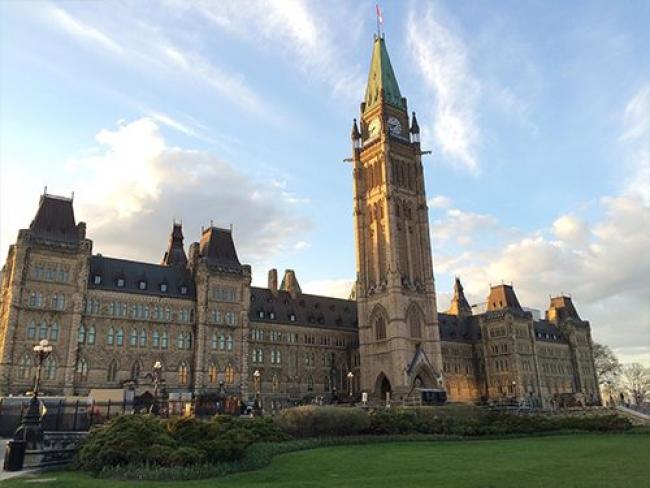Articles Menu

Full Story: The Canadian Press @CdnPressNews
The co-chair of a new expert panel set up to advise Ottawa on how to reach net-zero emissions says expansion of Canada’s tar sands/oil sands industry is “not well aligned” with that goal.
Dan Wicklum’s remarks were part of a release last week on the idea of setting a carbon budget for the country’s greenhouse gas emissions, The Canadian Press reports. They landed just as two of Canada’s top fossil CEOs opened a pitch for C$50 billion in taxpayer subsidies to bring their production emissions to zero by 2050 (without accounting for the more than 80% of their total emissions that occur when their product reaches its final destination and is used as directed).
Last Wednesday. Wicklum said the federal Net-Zero Advisory Body authored a report summarizing what other groups in Canada and beyond have said about ways to neutralize carbon-related emissions by 2050. The Liberal government recently passed legislation enshrining that target in law, meaning by that year, any greenhouse gas emissions still being released must be offset by other measures.
A group of 14 experts with backgrounds in climate, labour, and business were assembled to provide the government with advice and recommendations on how to reach its new goal. The expert panel’s first cited the need to “act urgently” and not wait too long for steeper emissions cuts as one of the principles that will guide its work.
“If you want to create a pathway to net-zero, don’t start with increasing emissions in the short term, and then promising to have deep cuts closer to 2050,” said Wicklum, president and CEO of the Transition Accelerator. The panel found the plans most likely to hit net-zero “are the ones that start now, use a carbon budget as a basic tool, and increase ambition to keep the 2050 goal within reach.”
In April, Canada increased its climate targets by promising to cut its carbon-related emissions by 40 to 45% below 2005 levels, deeper than the 30% the country committed to as part of the Paris Agreement.
Environment Minister Jonathan Wilkinson has said Canada is currently on track to reduce its emissions levels by 36% by 2030, and the work to make up the difference is ongoing.
Generally, a carbon budget sets the cumulative carbon-related emissions allowed within a certain amount of time, so that carbon pollution has to fall to a certain level by a particular year.
Wicklum said that while the panel isn’t recommending Canada adopt such a policy, carbon budgets are one way to measure progress.
“Intuitively people understand budgets,” he said. “So the concept of a carbon budget is definitely something we’ll be exploring.”
The Opposition Conservatives claim the advisory body is stacked with so-called “climate activists” whose advice could harm the country’s oil and gas sector, already hit with job losses. In fact, the panel includes three members with past or present fossil industry affiliations—Wicklum, ARC Energy Research Institute Deputy Director Peter Tertzakian, and Pembina Institute Executive Director Linda Coady.
Conservative Leader Erin O’Toole, along with 115 of his MPs, recently voted against the passage of the government’s net-zero legislation, Bill C-12, which sets rolling five-year emissions targets to reach 2050. The Conservative party was the only opposition party to do so.
“The C-12 vote was not a plan. It was actually just more showmanship by Justin Trudeau,” O’Toole said in a recent video shared on social media.
Wicklum said more than 120 countries have set a goal to hit net-zero by 2050 and the issue is not one that pits the provinces or Western Canada against Ottawa. “When I think of the oil and gas sector, they need to drive to net-zero because of this global imperative, not simply because of what the current national government is thinking,” he told CP.
Wicklum says the sector is Canada’s top emitter and noted there are expansion plans for the tar sands/oil sands.
“They’re working hard to reduce their emissions intensity, but because they have plans to increase their production, their emissions are set to increase, which is not well aligned with the concept of getting to net-zero. But that’s the reality of that sector.”
The original version of this report was first published by The Canadian Press July 7, 2021.